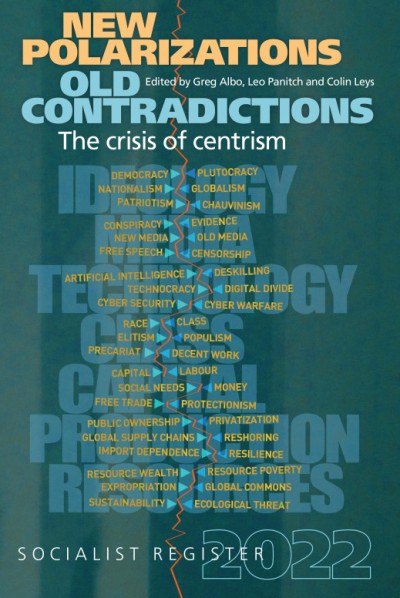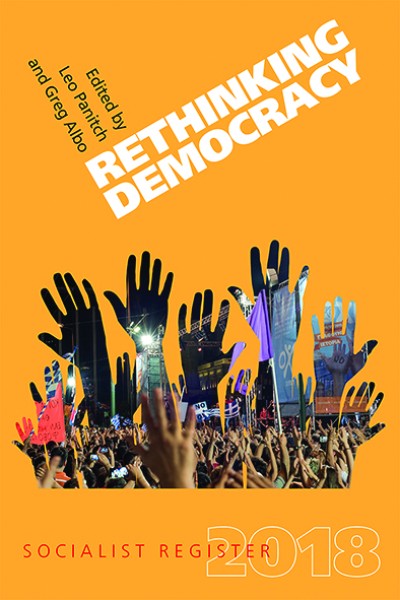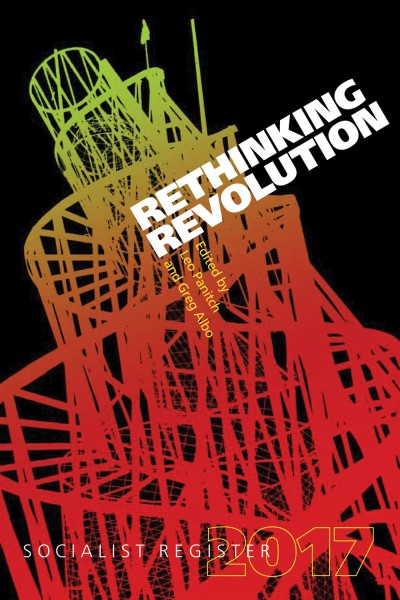
The Socialist Register 2009
Violence Today Actually Existing Barbarism
Violence in every possible form dominates current headlines and people’s fears. Understanding it has never been more urgently needed. This volume offers an insight into contemporary violence that the mainstream media – and even mainstream cinema – shrinks from providing on state violence, on violence in inner cities and prisons, and on the violence committed almost everywhere by men against women. In this book, consideration is given to the sources of imperialism and globalized capitalism, the legacies of habituation, insecurity and hatred, the dynamics of politically motivated violence and terror, and the conditions in which the superabundance of weapons exist.
About the book
This, the 45th volume of the Socialist Register, takes up a question that has preoccupied socialists for over a century–the likelihood that if capitalism is allowed to persist it will be characterised by increasing violence. When Rosa Luxemburg in 1916 quoted Engels’ famous statement that ‘Capitalist society faces a dilemma: either an advance to socialism, or a reversion to barbarism’, she asked: ‘What does a “reversion to barbarism” mean at the present stage of European civilisation? We have all read and repeated these words thoughtlessly, without a notion of their terrible seriousness. At this moment, one glance around us will show what a reversion to barbarism in bourgeois society means. This World War–that is a reversion to barbarism’. Given the extent and extremity of violence today, even in the absence of world war, and two decades after the end of actually-existing socialism, it is hard not to feel that we are living in another age of barbarism.
Contents
- The Human Shield (John Berger)
- The Endemic Violence of Contemporary Capitalism (Leo Panitch and Colin Leys)
- Reflections on Violence: A Critical Review of Left Thought (Peter Thomas)
- From Imperial Aggression to World War: Was Lenin Right? (Vivek Chibber)
- ‘Failed States’: Actually Existing Barbarism in Afghanistan and the Democratic Republic of the Congo (Christian Parenti)
- A History of Violence: USA (Ruth Wilson Gilmore)
- A History of Violence: Russia (George Derluguian)
- A History of Violence: Nigeria (Sofiri Joab-Pederside & Anna Zalik)
- A History of Violence: Colombia (Ulrich Oslender)
- A History of Violence: India (Achin Vanaik)
- India’s History of Violence: Women and Children First (Barbara Harriss-White)
- Violence Against Women Today, and Women Against Violence and Violent ‘Crime’ in the UK (Joe Sim & Steve Tombs)
- ‘Social Death’: Urban Gangs from Managua to Cape Town (Dennis Rodgers)
- The Privatisation of War (Avishai Erlich)
- Hollywood’s Violence (Philip Green)
- Diseases as Weapons of Mass Destruction (Garance Upham)
- Nepal: A ‘Successful’ Guerrilla War? (Mary Des Chenes & Stephen Mikesell)
- In Defence of Armed Struggle: ‘The Defence of Humanity Requires the Radicalization of Popular Struggles’ (Samir Amin)













